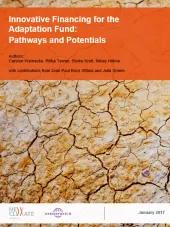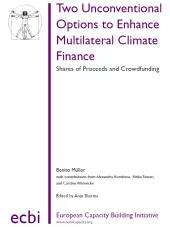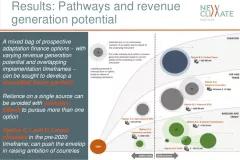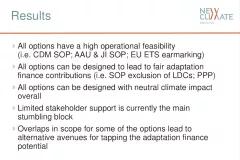The Adaptation Fund was established to support developing countries in managing the impacts of climate change, with particular attention to the most vulnerable communities. It pioneered features such as direct access, streamlined project cycles for small institutions, and has built a growing track record of results-based implementation of adaptation projects. Its primary funding source was intended to be a share of proceeds from the Kyoto Protocol market mechanisms, which became less relevant following the collapse of CO₂ certificate prices. As a result, the Fund has faced growing financial demands, with donor contributions only partially compensating for the shortfall.
NewClimate Institute partnered with Germanwatch to develop a position paper providing an updated analysis of potential new sources of innovative finance for the Adaptation Fund, focusing on carbon pricing instruments.
Seven options were identified across international, national, and non-state actor levels. A multi-criteria analysis was applied to assess their financial potential. Based on this assessment, the study discussed models of engagement and political pathways for the Adaptation Fund.
The study was supported by the German Federal Ministry of Environment, Nature Conservation, Building and Nuclear Safety (BMUB).







